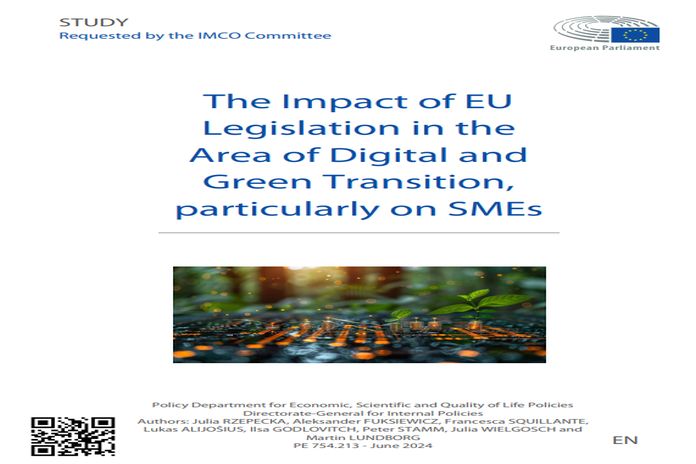By Caribbean News Global ![]()
BRUSSELS, Belgium – EU legislation calls SMEs to contribute to the twin transition. This study analyses the cumulative costs of selected pieces of EU digital and green legislation on SMEs and explores the effectiveness of costs mitigation tools at their disposal. This document was prepared for the Policy Department for Economic, Scientific and Quality of Life Policies at the request of the Committee on Internal Market and Consumer Protection (IMCO).
Background
Small and medium-sized enterprises form the backbone of the European Union’s economy. They account for 99 percent of European enterprises and generate about 52 percent of the EU’s added value, counting on 64 percent of the total private employment of the non-financial business sector. They are a driver of innovation, competitiveness and growth. However, SMEs are more vulnerable to new regulatory burdens than large businesses. In order to drive the green and the digital transitions, European and national authorities are developing and implementing a great number of new laws, many of which disproportionately impact SMEs.
Aim
The objective of this study is to assess the impact of selected pieces of EU digital and green legislation on companies, particularly SMEs, and how costs can be mitigated. In particular, this study identifies and estimates the costs of EU legislation on SMEs, especially vis-à-vis the green and the digital transitions, and investigates the adoption and usefulness of digital and e-government solutions to support SMEs in facing administrative burdens. The study also aims to offer an overview of the impact of EU legislation on SMEs from the perspective of five different sectors, assessing potential sector-specific factors that increase the cumulative cost of EU legislation. Moreover, it presents the existing tools for the implementation of the “Think Small First” principle in the adoption of EU legislation and the extent to which they are currently applied.
Key findings
The analysis of the impact of selected pieces of EU digital and green legislation on SMEs allow to identify some key findings and conclusions from the interviews with relevant stakeholders. As many of these concerns appear well-founded, or at least worth investigating, there may be scope for the next European Commission and Parliament to consider the following points with a view to further improving law-making procedures, streamlining the rules and contributing to better enforcement.
[…]





